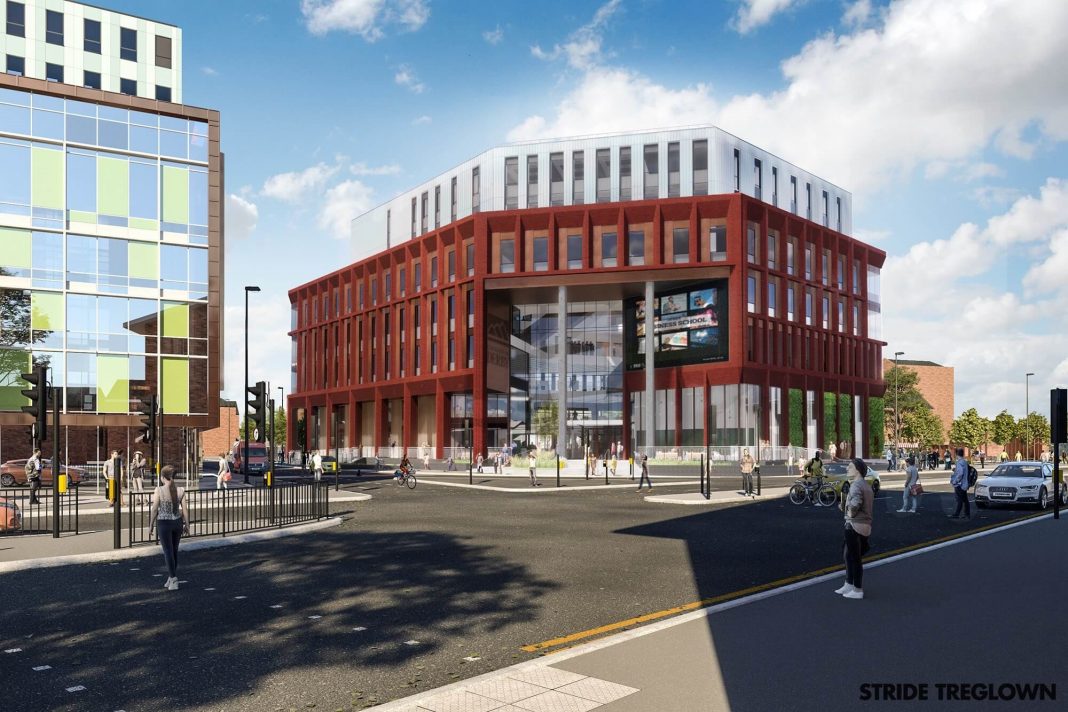Plans put forward by the University of Derby to build a Business School in the city centre have been approved.
Earlier this year the University submitted a planning application to build Derby Business School on land adjacent to the University’s One Friar Gate Square building, and last night (Thursday 26 May) Derby City Council’s planning committee unanimously gave it the go ahead.
Construction for the new development, which is proposed to be net zero carbon in construction and operation, is due to start in November 2022, with the building earmarked to open in September 2024.
Professor Kathryn Mitchell CBE DL, Vice-Chancellor and Chief Executive of the University of Derby, said:“We are delighted that the planning application for our city centre-based Derby Business School has been approved.
“This is a key milestone for the project, and we are extremely pleased to have reached this stage. The building will be crucial in the city’s regeneration plans and will offer students a high-quality, innovative learning and teaching environment. Working closely with our partners, we are looking forward to the next phase of this ambitious and significant development.”
The new building is projected to be the study base for more than 6,000 students by 2030 and is the first element of the University’s City Masterplan, which is the vision for how the University intends to develop its city centre presence and improve connectivity between its sites. The new Business School building will feature innovative teaching and learning spaces including a virtual reality suite, stock market trading room and creative labs. Alongside this, the building will be a technology-enabled smart campus and be used as a living lab for research projects from across the University and industry.
Manjit Paget, Programme Manager for Derby Business School, added: “We expect this development to be a welcoming and interactive space – a building where students will learn, but also where businesses can come in for advice, work with our student community, researchers and business support units. The idea is that it will host specialist spaces for collaboration and idea generation, and will enable us to further enhance our research with partners across the D2N2 corridor.”



